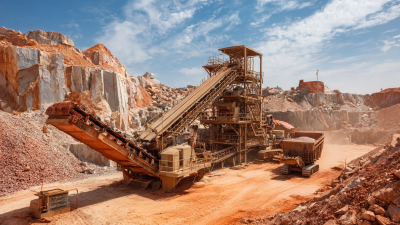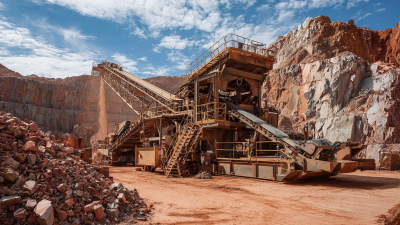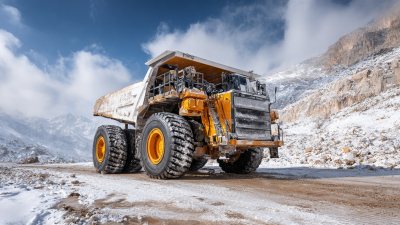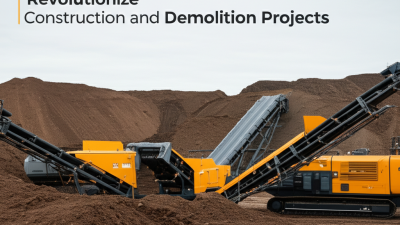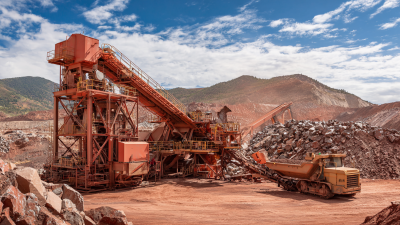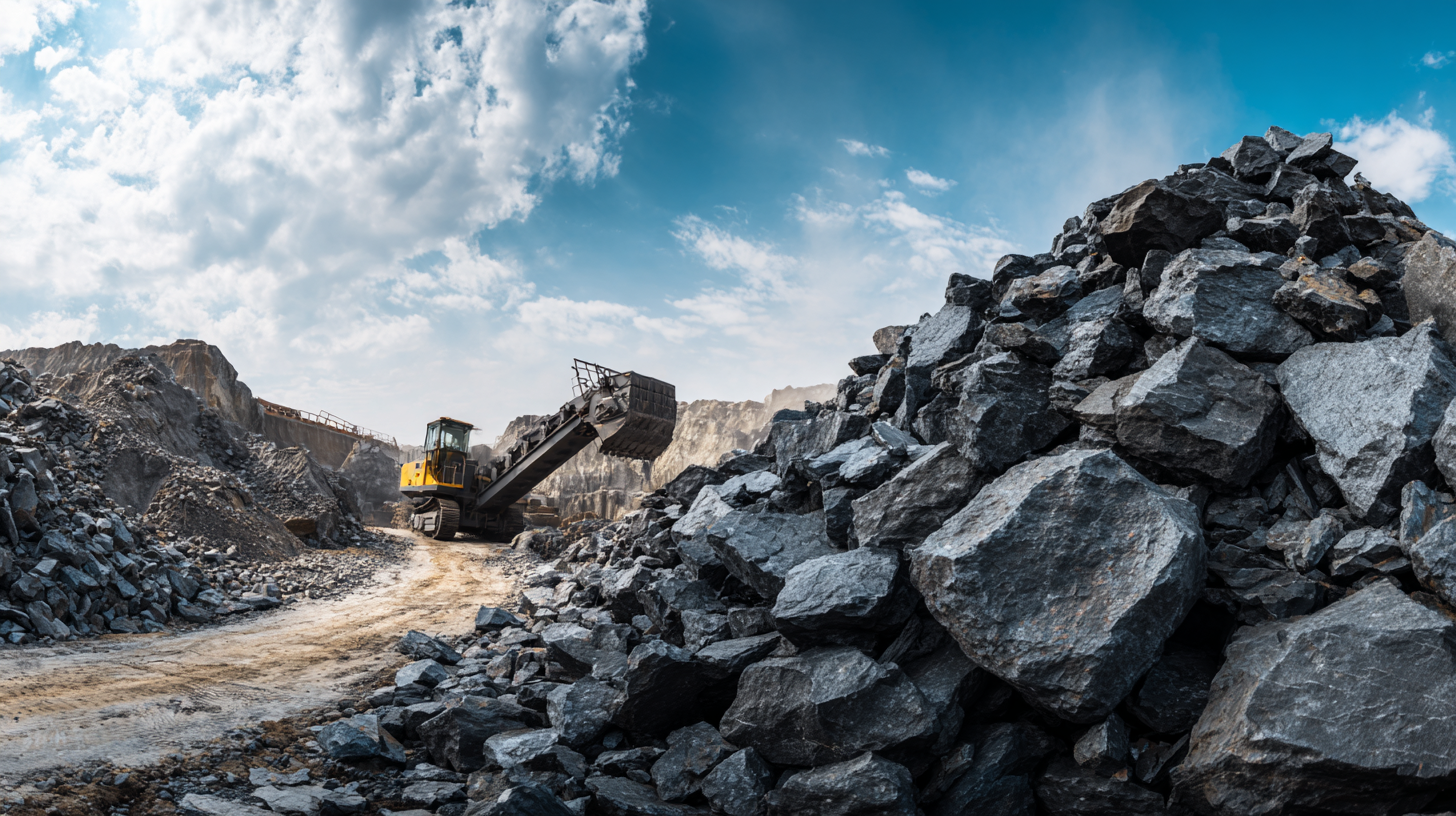 In the ever-evolving landscape of construction and mining, selecting the right equipment is critical for operational efficiency and project success. One of the most essential pieces of machinery in this domain is the rock crusher. According to the Global Rock Crusher Market report, the industry is expected to reach $4.2 billion by 2025, driven by increasing demand for minerals and aggregates in construction projects. This underscores the importance of choosing the best rock crusher tailored to your specific project needs.
In the ever-evolving landscape of construction and mining, selecting the right equipment is critical for operational efficiency and project success. One of the most essential pieces of machinery in this domain is the rock crusher. According to the Global Rock Crusher Market report, the industry is expected to reach $4.2 billion by 2025, driven by increasing demand for minerals and aggregates in construction projects. This underscores the importance of choosing the best rock crusher tailored to your specific project needs.
When assessing the right rock crusher, several factors come into play, including the material being processed, desired output size, and the expected volume of production. For instance, jaw crushers are known for their ability to handle large feed sizes, making them optimal for primary crushing operations, while cone crushers excel in secondary and tertiary applications due to their fine crushing capabilities. Additionally, the evolving technological trends in rock crushers, such as automation and energy efficiency, are notable as they can significantly impact operational costs and productivity.
Ultimately, making an informed decision on the type of rock crusher to utilize can lead to increased efficiency, reduced downtime, and long-term cost savings. With the rock crushing market constantly advancing, understanding these dynamics is vital for stakeholders looking to optimize their project outcomes.
When selecting the best rock crusher for your project, it's crucial to consider a few key factors that can significantly impact your operations. First, evaluate the material type you will be processing. Different crushers are designed for specific materials, such as granite, limestone, or recycled concrete. Understanding the hardness, abrasiveness, and moisture content of your material can help you choose a crusher that optimally handles it, leading to better efficiency and less wear on the equipment.

Another vital aspect to consider is the desired output size and capacity of the crusher. Assess your project requirements, such as the volume of material you need to crush and the size of the final product. Depending on these specifications, you may opt for a jaw crusher, impact crusher, or cone crusher. Additionally, consider the availability of spare parts and the manufacturer's support services, as reliable maintenance and support can ensure the longevity and performance of your rock crusher throughout the project lifecycle.
When selecting a rock crusher for your project needs, it is crucial to understand the different types of rock crushers available and their specific uses. Jaw crushers, for instance, are ideal for primary crushing, effectively breaking down large rocks into smaller pieces. According to the National Stone, Sand & Gravel Association, approximately 40% of crushed stone production in the USA utilizes jaw crushers due to their robustness and versatility in handling various materials.
Another common type is the cone crusher, which is particularly effective for secondary and tertiary crushing. It excels in producing finely crushed aggregates and is widely used in the mining and construction industries. A report by Technavio indicates that the global cone crusher market is expected to grow by USD 297.9 million between 2020 and 2024, driven by the rising demand for crushed stone, particularly in infrastructure projects.
Finally, impact crushers are beneficial for projects requiring high-speed reduction of materials. They work by propelling rock against a hard surface, which results in fracturing. They are preferred in recycling applications as well as in processing softer materials, since they can yield a high ratio of size reduction with minimal wear. Understanding these distinctions allows project managers to optimize material processing while maximizing efficiency and cost-effectiveness.
Choosing the right rock crusher for your project starts with a thorough assessment of your specific requirements. Understanding the types of materials you will be crushing is crucial; different crushers handle different material hardness and size. For example, a jaw crusher is ideal for handling larger, tougher materials, while a cone crusher can efficiently crush harder minerals. Additionally, consider the expected output size and volume, as these factors will determine the capacity and type of crusher best suited for your operation.
Another essential aspect is the operating environment and logistics of your project. If you're working in a remote area, portability becomes a key factor, guiding you to select a mobile or track-mounted crusher. Moreover, take into account the energy source, as some crushers require more power than others, influencing both operational costs and feasibility. By carefully evaluating these project requirements, you can ensure that the rock crusher you choose aligns with your goals, ultimately leading to increased efficiency and productivity.

When budgeting for your rock crusher purchase, a thorough cost analysis is essential to ensure you choose the right equipment that aligns with your project needs. The rock crusher market has experienced significant growth, driven by the expanding demand for construction materials across various industries. This trend indicates that investments in high-quality rock crushers can yield substantial returns, mainly due to their critical role in the production of aggregates for construction.
When assessing costs, consider both initial purchase prices and long-term operational expenses. Factors such as maintenance, parts availability, and energy efficiency can greatly influence the total cost of ownership. Additionally, the rock crusher market shows dynamic shifts, including mergers and acquisitions that can affect pricing structures and supplier choices. Therefore, staying informed about industry trends and market dynamics will aid in making a well-rounded financial decision, ensuring your project is equipped with the most effective and budget-friendly rock crushing solution.
| Rock Crusher Type | Initial Cost (USD) | Operating Cost per Hour (USD) | Maintenance Cost per Year (USD) | Average Lifespan (Years) | Suitable Material Types |
|---|---|---|---|---|---|
| Jaw Crusher | $10,000 | $50 | $1,000 | 10 | Rock, Gravel, Concrete |
| Cone Crusher | $15,000 | $75 | $1,200 | 15 | Stone, Ore, Fragments |
| Impact Crusher | $12,000 | $65 | $900 | 12 | Limestone, Asphalt, Clay |
| Hammer Mill | $8,000 | $40 | $800 | 8 | Coal, Biomass, Wood |
| Vertical Shaft Impact (VSI) | $20,000 | $85 | $1,500 | 14 | Granite, Pebbles, Pumice |
When selecting rock crushing equipment, durability should be a top consideration to ensure maintenance and longevity. High-quality materials and robust engineering play a crucial role in the lifespan of your equipment. Investing in rock crushers made from hardened steel and possessing advanced wear-resistant technology can significantly reduce the frequency of repairs and parts replacements, ultimately saving you both time and money over the long haul.
Choosing rock crushing equipment that prioritizes durability not only enhances operational efficiency but also ensures that your investment stands the test of time in various project conditions.
